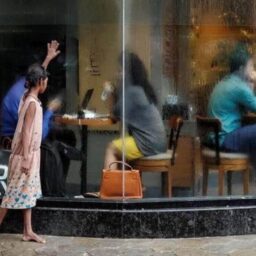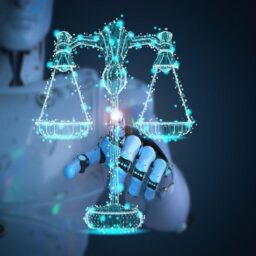INTRODUCTION
Human rights are ideals that recognise and protect the dignity of all people. Individual human rights have an impact on the way people live in society and network with one another, as well as their association with the state and the obligations that the state has to individuals. It would be a fallacy to consider these rights as a gift of state to its citizens. These rights are universal and intrinsic to all people, regardless of their ethnicity, gender, origin, race, religious belief, linguistic background, etc. They series from the most fundamental – the right to life – through the rights to food, education, employment, health, and liberty, which make life worthwhile. They are the norms for the protection of individuals from abuse on political, social and legal grounds.
International Organisations plays an important role in upholding the commitment towards the protection of these human rights. Many organisations seek to protect human rights and put an end to human rights violations all over the world. Major human rights organisations have huge websites dedicated to recording violations and advocating for government and grassroots action to redress them. Human rights organisations are most effective when their calls for transformation are accompanied by robust public backing, therefore public backing and criticism of violations are vital to their achievement.
Human rights have always been a very subjective concept and are quite a modern concept that came into existence only after World War II with the foundation of the United Nations in 1945 with the subsequent adoption of the UN General Assembly and then the Universal Declaration of Human Rights (UDHR) in 1948, making it the first legal tool to define internationally guaranteed fundamental human rights. The Universal Declaration of Human Rights serves as the basis for all global human rights legislation. Its 30 articles serve as the cornerstone for all human rights conventions, treaties, and other legal agreements, both current and future. The Universal Declaration of Human Rights, the International Covenant on Civil and Political Rights, and the International Covenant on Economic, Social, and Cultural Rights make up the International Bill of Rights.
However, a large chunk of children residing in Senegal, a country in West Africa has been subjected to the extreme human rights violation. Boys as young as 5 years old might be seen begging for a handful of coins or rice on the streets; the only meal they used to have was either something they got in charity or leftovers. There exist many children for whom there is no one to look after due to which when they are done with the begging, they return to those people from whom they wanted to getaway. These abusers beat these boys into submission, punish them for attempting to flee, and deprive them of all basic human rights.
These children are known as talibés which usually range between the ages of 5 to 15 years. “They study the Qur’an with the guidance of a teacher, called a marabout. Many talibés live in daaras, which are residential schools where students study the Qur’an.” Although, while the majority of marabouts deliver a pleasant and caring atmosphere in which children can learn about Islam, others subject children to appalling survival environments and conduct. Many marabouts direct talibés out into the streets to beg during the day. Few people in Senegal question this unethical behaviour, and even fewer are aware that it exists on a worldwide scale. While some may consider this behaviour as a sign of deficiency, it is a significant violation of human rights caused by government inertia, twisted customs, and desperate families. And it’s the narrative of almost a hundred thousand Senegalese youngsters.
“In 2019, Human Rights Watch (HRW) published a report documenting its findings when investigating the plight of talibés in cities across Senegal in 2018 and 2019.” Talibés are exposed to physical torture in addition to forced begging. Many talibés are even punished by the Marabouts when they fail to bring the desired amount from begging.
The talibé phenomenon is primarily a tradition based on humility and community development ideas. Senegal has a long tradition of placing a high value on Islam. The study of the Qur’an under the supervision and guidance of marabouts is an important aspect of Islam. During their religious education, Talibés would study the Qur’an and assist the daaras. They did so regularly by gathering food donations from local villagers, who were urged to do so because generosity is an Islamic belief, and assisting the destitute improves community relationships. This educational system was created to assist Muslim men in deepening their faith and building community via generosity.
However, as a result of urbanisation, this educational system lost the support that familiar communities had provided. Because they have no other means of support, Talibés must now rely on strangers to survive. Many marabouts saw child begging as profitable and after this transition youngsters were begin to be exploitated, particularly in urban areas there is no national framework in place to govern daaras at the moment. Since Senegal is a secular country, there are no regulations governing daaras, providing marabouts with an opportunity to exploit their talibés with impunity, Further, there exists no formal curriculum and since Senegal is a Muslim dominant country, Islamic scholars are highly respected in society. By using this reputation as a means of escape, many corrupted marabouts are indulged in violating the basic rights of these innocent lives.
CONCLUSION
The issue needs to be escalated on the global level with immediate effect as these corrupt individuals with malicious intentions are not only damaging the society in the present moment but its effect will extend to the future with all these innocent lives suffering and losing their childhood to the pain they never deserved. Education can be a key player in changing the lives of thousands of children as if awareness programs are held, everyone is taught about their basic human rights formulated for the protection of their dignity. Government is another major factor that plays a crucial role to save the future of thousands of lives from going into the dark by forming and implementing strict policies to save these children from exploitation.
No practice which has been running through ages can be changed in a day but small steps can prove to be significant and will lead to saving lives of thousands of children.
Author(s) Name: Aman Malhotra (Rajiv Gandhi National University of Law, Punjab)
















